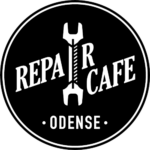New Research on Why Repair Cafés Rock
Repair cafés (RCs) are changing the world. No, really! And Julia Wummel, a Master’s student in Market Anthropology at SDU Odense, researched RCs in Denmark to find out how and why.
Julia’s research spanned 3 repair cafes and involved 30 interviews, 6 diaries, and 13 questionnaires. Here are some of her findings.
Repair cafés are a means of local community-building around the repair and sustainability mentality. In practice, they form a diverse and international movement. The numbers of RCs are rising fast in Denmark and all over Europe because they offer an addition to the repair infrastructure available on the city level, as well as a free alternative to buying new.
The people who attend and especially volunteer for RCs are creating small, passionate communities – but they often come with a variety of different motivations. The main two are about sustainability – i.e. they are passionate about global climate protection and a future green utopia – and the other about practicality – they are nostalgic for “repair culture” and don’t easily give up on people or objects. 
RCs are places where highly educated eastern-European engineers and Nepalese professors can work together with electricians and retired Danish stay-at-home moms. Pretty cool!
Not only do these people share and build their skills and knowledge, they socialize and build a community around repairs.
Repair café volunteers are:
- 60/40 Danish/non-Danish
- 55/45 male/female
- Multigenerational – mostly under 33 and over 50
- Mainly highly educated, with university education of over 5 years
 Who benefits from the RCs?
Who benefits from the RCs?
In short, everyone!
RCs provide a flexible concept that is easy to implement and personalize based on the local community. They provide a great place to educate people on the importance and methods of repair, but they also have great implications for sustainability. For example, our work in Odense Odense has saved 1.4 tonnes of CO2.
Repair cafés support:
- A learning environment for consumers about everyday objects
- A sustainability mindset
- Reduction of CO2 from repaired/reused items
- Exchange and local skill-building among volunteers
- A community that feels more connected, knowledgeable and motivated
 How can RCs grow and improve?
How can RCs grow and improve?
According to Julia, “There are differences and diverging tendencies among volunteers, yet the greatest aspect of the RCs is the diversity and exchange that can happen between generations and different social bubbles!”
To level up, growing RC groups can add a social element – both for the volunteers and the community that attends. Some of the tightest-knit volunteer groups Julia has seen meet for pizza after their RC. Others provide a social environment over coffee and cake offered for a nominal fee that allows them to build relationships with the attendees.
“As a result,” says Julia, “the RCs benefit social, financial, and environmental issues. They can mean something different to each volunteer, but a big part of their success is to unite a nostalgia for the past with the ideal of a future green utopia.”
Now that’s something we can get on board with!


